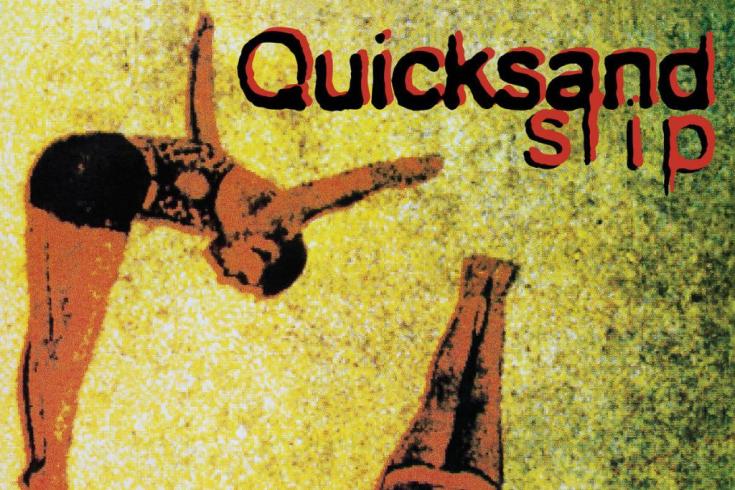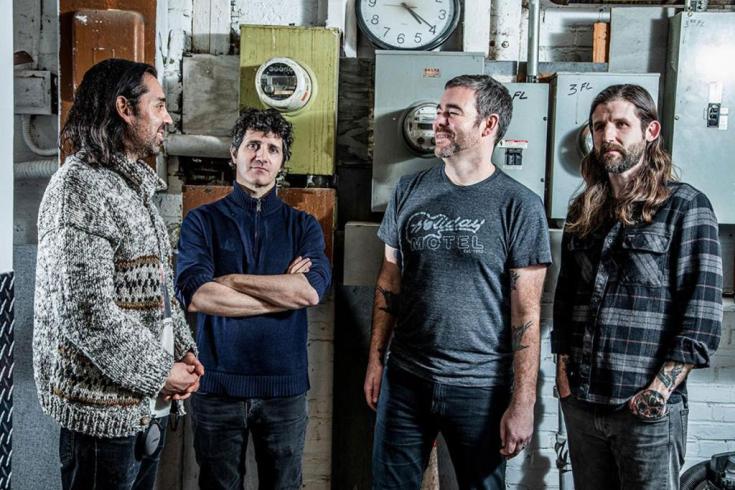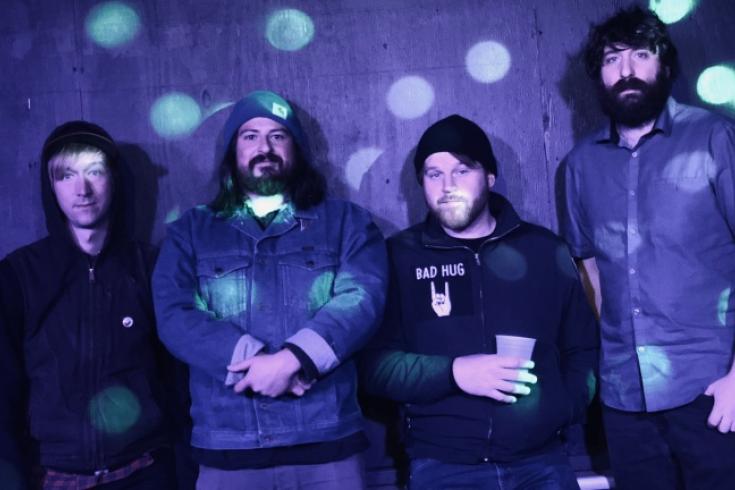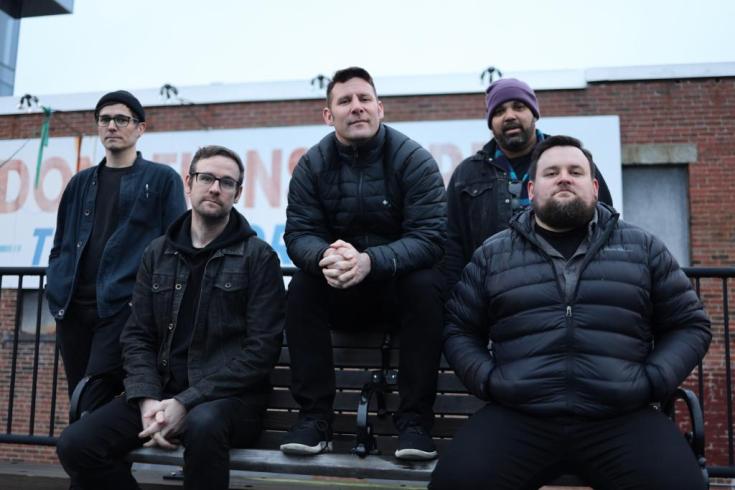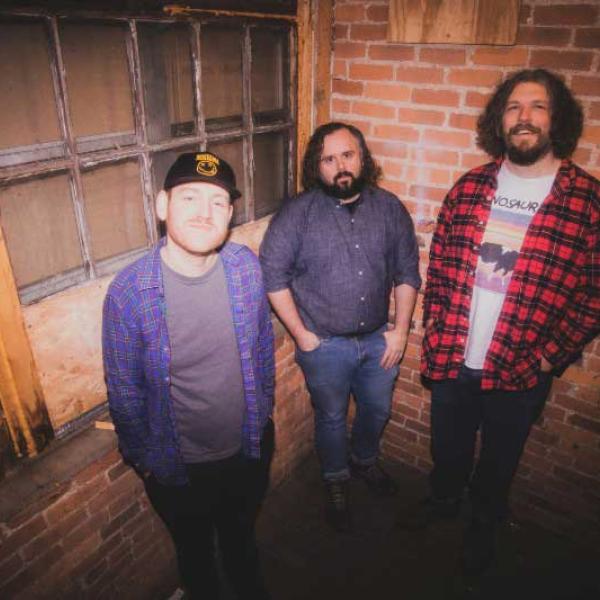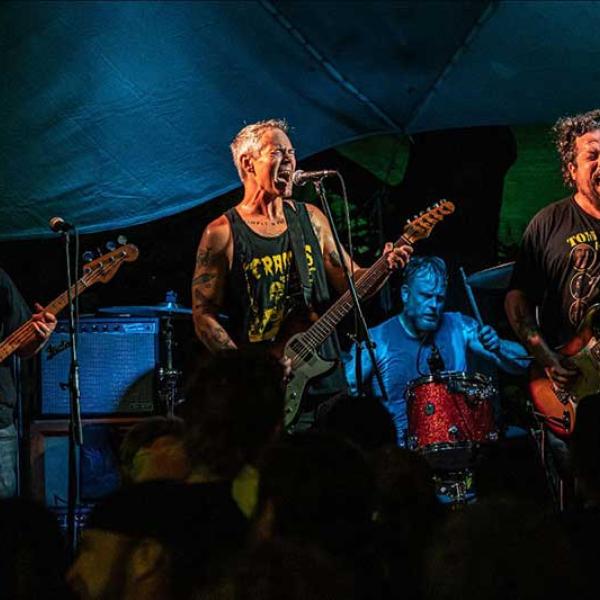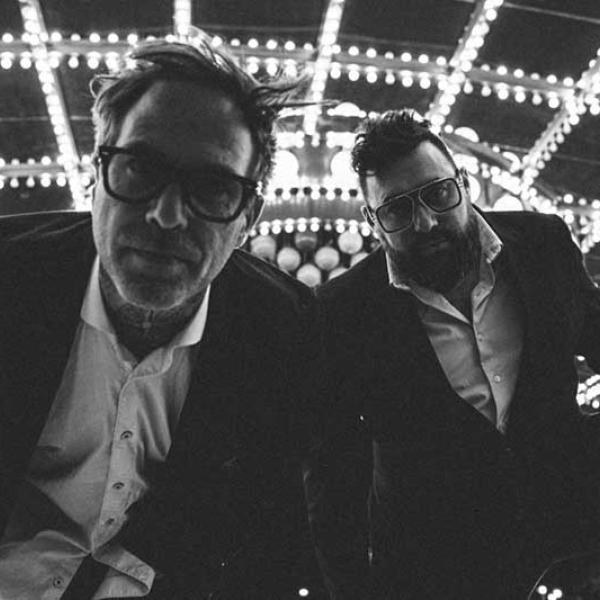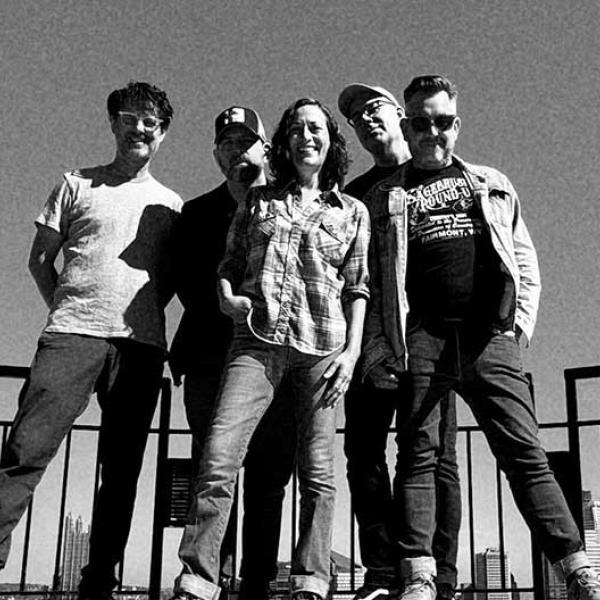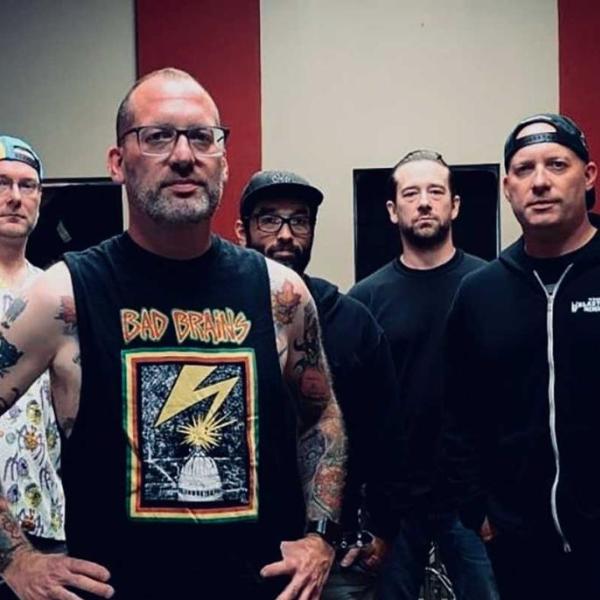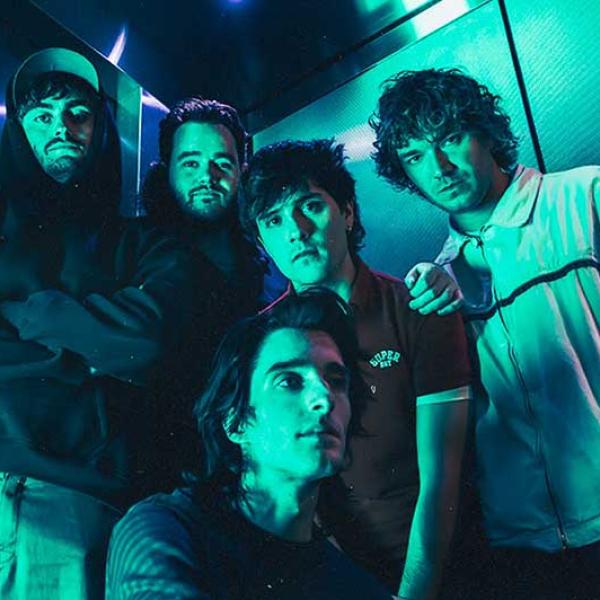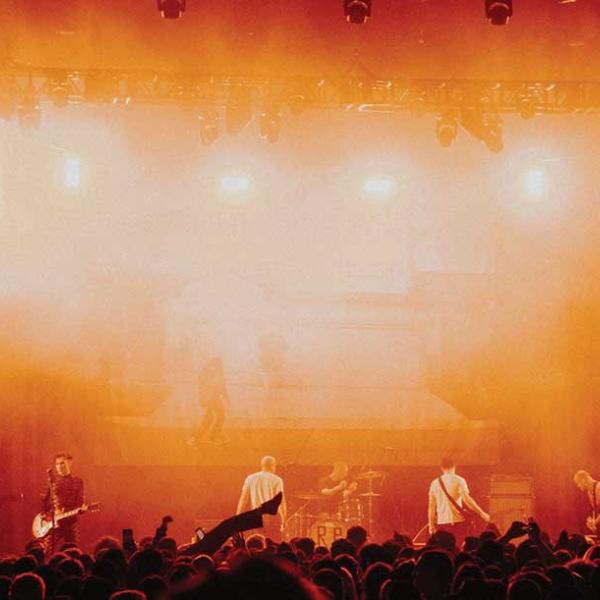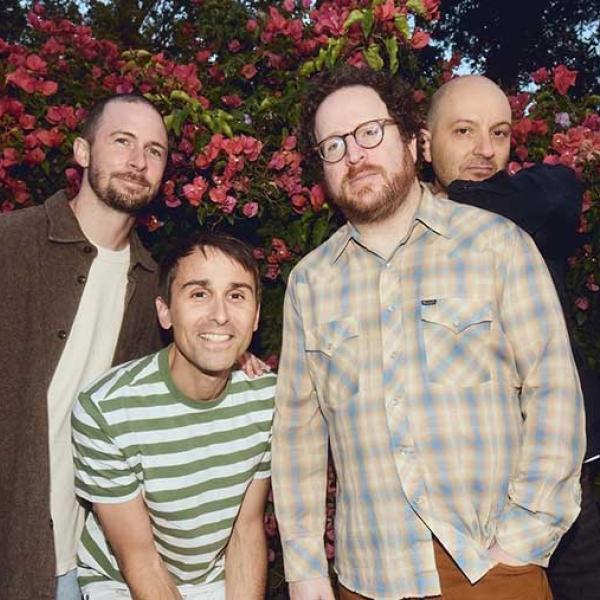Features
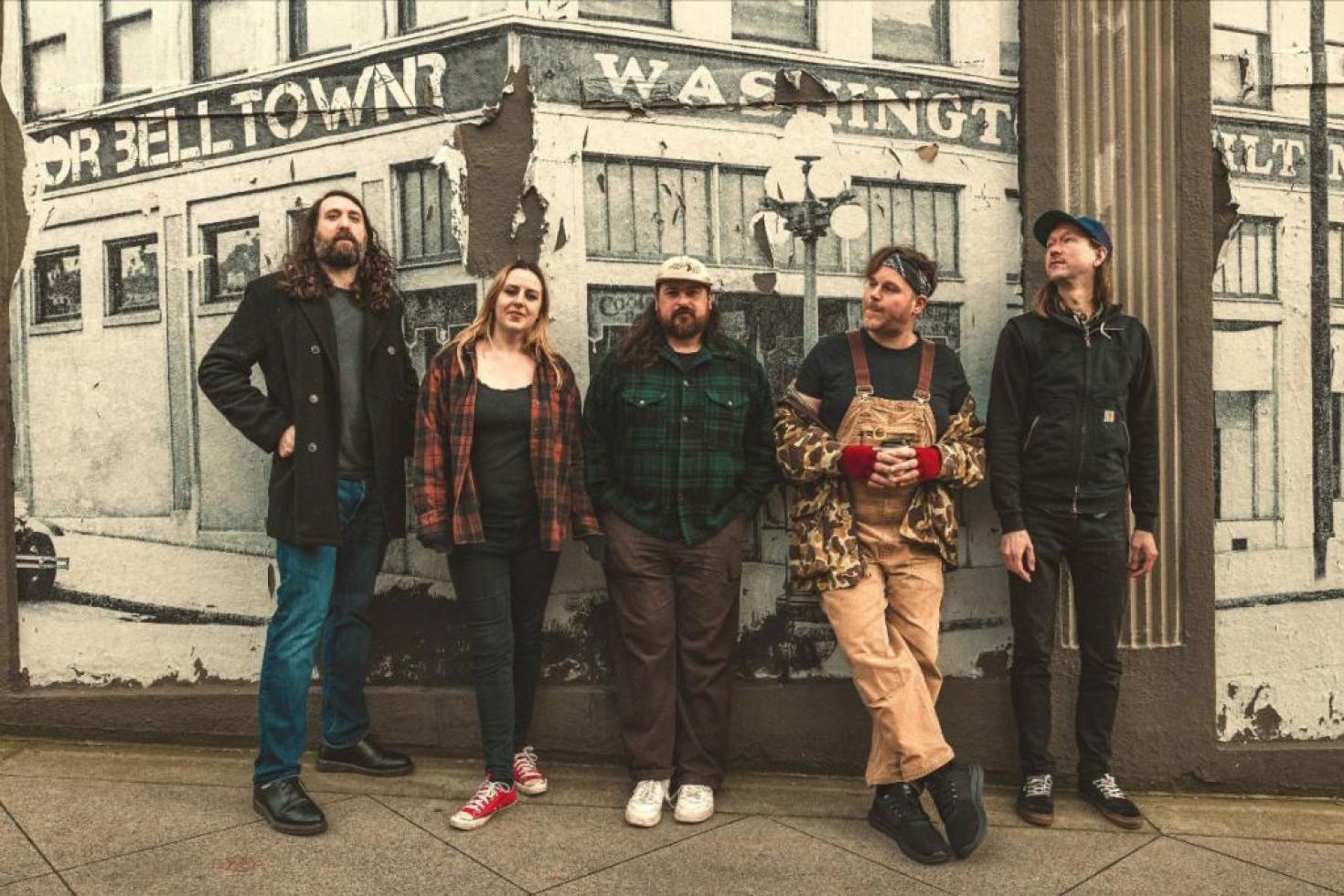
For over a decade, Seattle’s DEAD BARS have carved out a place in the underground rock landscape with anthems that hit like a hammer and hearts worn boldly on sleeve. Described by Razorcake as a band that "makes something impossible to duplicate look so simple and attainable," DEAD BARS—fronted by the relentless and charismatic John Maiello—have long delivered raw, cathartic hard rock in the tradition of Japandroids, White Reaper, and Fucked Up. Their latest release, All Dead Bars Go To Heaven (out now via Iodine Recordings), is a thunderous declaration of purpose, defiance, and hope—packed with hook-heavy songs that both salute the past and crash forward into the unknown.
We sat down with Maiello to talk about the making of the new record, the evolution of DEAD BARS, and what it means to believe in something loud, messy, and immortal. Because when he screams “Dead Bars Forever,” it’s not just a lyric—it’s a mission.
PRT: When Dead Bars started out, you had a revolving cast of people helping out whereas now you have solidified the line-up. Was that an organic change over time or did it take some adapting?
JM: It was organic! Everyone in the lineup wanted to be part of the group and believes in what we are doing. It definitely is a band where everyone contributes now and I love that and need that. We are stronger together!
PRT: I read that for the new album, you asked every band member to contribute one song. Was that a way to make the songwriting more collaborative this time around? Were you surprised by what the others brought to the table?
JM: Not exactly... I just asked everyone to bring anything they wanted to work on. Not necessarily one song per member. It was actually awesome because instead of members being like "I wrote a song," they were like "I wrote a Dead Bars song.” It was cool to have people approach their own writing through the lens of the style and sounds that I had set up from the get-go. C.J. and Oddo have songs on the album, and Elliot wrote sick guitar parts for all the songs. It was the most collaborative process yet.
PRT: You see ’All Dead Bars Go To Heaven’ as the beginning of the next era for the band. In what way exactly?
JM: Heaven does not represent death. It represents eternal life. It's just a statement about how we are going to keep going no matter what. We are looking forward to the never-ending future!
PRT: You produced the album yourself along with Evan Foster. What was the most satisfying part about producing yourself? And what was the most challenging part?
JM: When we decided to make this album, the band basically told me to produce it. We trusted Evan but also needed a band member to guide the performances. Particularly with drums and vocals, I was very involved in that process for performance. Sometimes if we got stuck, we would ask for help from the "GODS": Tom Petty, Joey Ramone, Lemmy. If we didn't know what to do, we would ask "What would Joey Ramone do?" and then we would just go in that direction. I really love producing and working with Evan Foster at No Count Studios in Seattle. I would love to produce more in the future.
PRT: You did not only spend more time working on the songs before going into the studio, you also spent more time in the studio than with previous releases. Was that a more comfortable way of working? Or is there still something to be said for banging out an entire album in a couple of days as well?
JM: More studio time just meant that we could take some extra care. I like moving fast but sometimes you just need time to make your vision happen. We had strings on this album. That stuff takes time. We did a lot of records fast and dirty, so it was time to try something different and make an intentional studio album. No regrets.
PRT: Up until when you started Dead Bars, you had always played the drums in your other bands. How do you feel you have grown as a frontman/primary songwriter over the past 12 years?
JM: I wrote a lot of the drum parts for this record, too! One time I watched an interview with Dave Grohl when he kicked out the Sunny Day drummer for making up weird parts to songs and he was like, "I know how the drums are supposed to go." That's how I feel. When I write songs, I have the drum parts set in my head, so if the drums are off, then the whole song is off. Being a frontman is cool too. I feel like I've become a better singer over the years and take more care in vocals then I ever did before. I love the vocal performance on this record.
PRT: When you started Dead Bars, you didn’t want it to be political at all. Moving forward and with everything that is going on in the US right now, do you think that will change? Or do people need a good time now more than ever?
JM: Depends what you mean by political. "Dream Gig" could be political. "Give the Metalhead a Hug" could be political. I think people needed a band like Dead Bars before, they need Dead Bars now, and they need Dead Bars in the future.
PRT: ‘All Dead Bars Go To Heaven’ is your first album for Iodine Recordings. How did you end up signing with them?
JM: I think it was through our friends Rebuilder who put out an album with them. I really respect what they do and their diverse roster of bands. I love how we are more of a punk band on the hardcore label. Thank you to Iodine for taking a chance on us and thanks to everyone who bought a record!
PRT: What’s up next for Dead Bars now that the new album is out?
JM: Sell more records and play more shows. Sign up for the newsletter at deadbars.com


